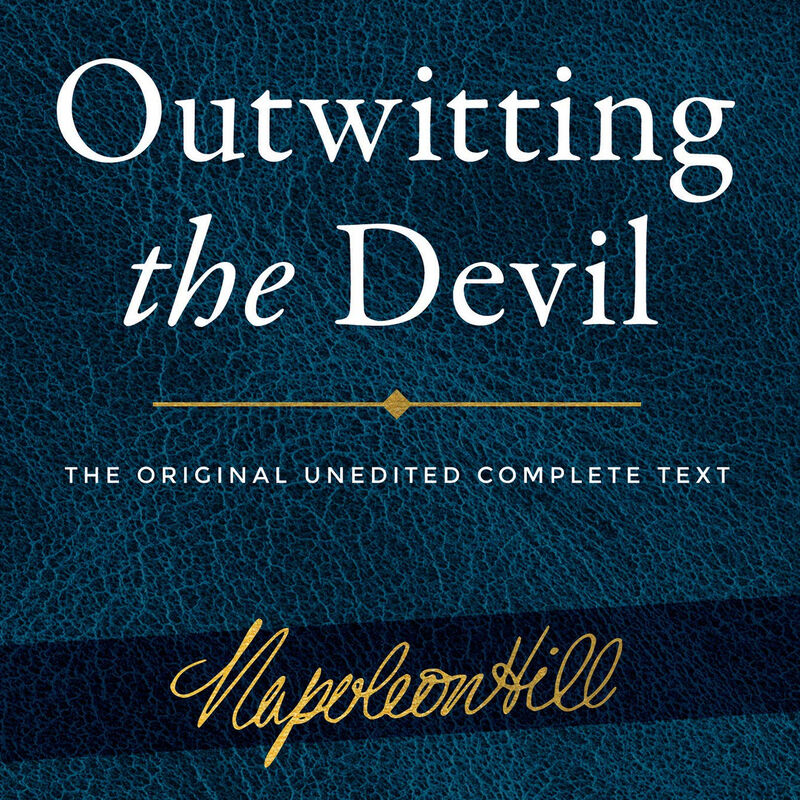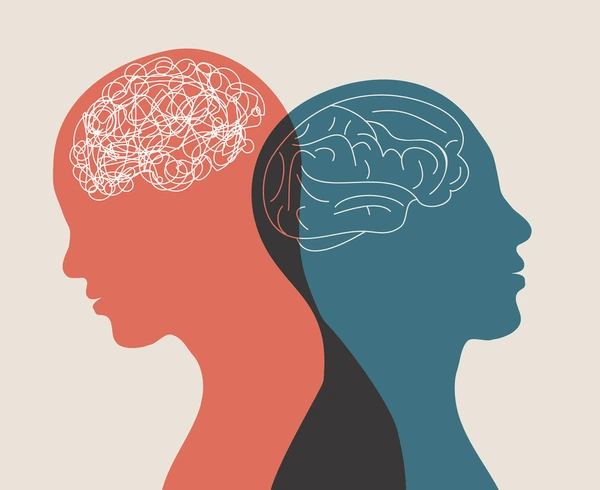Moxie: Outwitting The Devil
Jul 28, 2025"Drifting, without aim or purpose, is the first cause of failure."
("Drifting" Photo by Amit Rawat.)
ONE STORY
The Devil doesn’t need to destroy you.
He just needs you to drift.
In 1938, Napoleon Hill wrote a manuscript that wouldn’t be published for more than 70 years.
It was too bold, too strange, and too honest for its time.
He called it Outwitting the Devil. (A fictional dialogue between himself and a character he refers to as the Devil).
Hill wasn’t speaking about a literal demon.
Not even a religious figure.
No, according to Hill, the Devil is that internal voice of fear, doubt, distraction, and conformity inside all of us. (Or our teams, our companies, and our relationships).
(Napoleon Hill in 1904.)
The Devil, in Hill’s words, isn’t interested in violence.
His strategy is far more subtle:
He gets you to drift.
To move through life without direction, without intention, without resistance.
“I cause people to allow me to do their thinking for them because they are too lazy and too indifferent to think for themselves.” - The Devil (in Hill’s fantastical prose).
Hill’s Devil describes his toolbox with eerie precision:
- Fear, especially fear of criticism, poverty, old age, and death.
- Procrastination, stopping you before you even start.
- Distraction, through media, gossip, and noise.
- Indulgence, in comfort, pleasure, and passivity.
- Factory-model Education, that rewards memorization over critical thinking.
- Religion, when it reinforces fear instead of freedom.
(Outwitting the Devil was written in 1938 – but wow – this 👆🏻 sounds familiar, doesn't it?)
Now, people don’t knowingly choose these tools.
They slip into them.
They believe they’re being practical.
But really, they’re often just being passive.
But Hill doesn’t leave us there. He outlines a way forward.
A path out of drift and into decision.
The antidotes?
- Definiteness of Purpose, Articulate a vision, and commit to it.
- Self-Discipline, Master your habits, your inputs, and your attention.
- Accurate Thinking, Question assumptions and challenge group think.
- Learning from Adversity, Let failure sharpen you, not shrink you.
- Mastery of Environment, Surround yourself with clarity, not confusion.
- Faith Over Fear, Trust your vision more than your insecurities.
Hill’s metaphorical Devil admits one thing: he loses power every time someone becomes clear, intentional, and courageous.
Which means he loses every time you get clear, and take courage.
Isn't This Pseudoscience?
What Hill called the Devil wasn’t a demon.
It was a metaphor. A stand-in for things we now have names for: Amygdala hijack. Learned helplessness. Executive dysfunction. The Default Mode Network.
And here’s the wild part: science backs this up.

Fear rewires your brain.
The amygdala scans for danger. It floods your body with stress. It narrows your thinking. Not just in crisis, but in everyday life.
Especially when you’re afraid of criticism. Or failure. Or not being enough.
Drifting, Hill’s real villain, now has a brain-based name: The Default Mode Network.
It activates when you’re unfocused. It pulls you into rumination, autopilot, and passivity.
And the cure?
Hill said it was Clarity.
Commitment to a Purpose.
Neuroscience agrees.
When you set clear, meaningful goals, your brain changes. The prefrontal cortex lights up. It starts filtering for what matters. And blocking out what doesn’t.
Self-discipline? That’s just habit science. Neuroplasticity. Cue, routine, reward.
The more you act with intention, the stronger the wiring gets.
And your environment? Hill said it shapes you. He was right.
Who you spend time with matters. What you consume matters. Your inputs shape your identity.
Drift is contagious.
But so is clarity.
So is courage.
So is the commitment to live today with purpose.
📜 TWO QUOTES
"The greatest danger is not that we aim too high and miss it, but that we aim too low and reach it."
— Michaelangelo
“Evil doesn’t always come dressed up as a devil. Sometimes, it comes as distraction, delay, or comfort.”
— Unknown
🚀 THREE TAKEAWAYS
1. The greatest tragedy isn’t failure. It’s failing to aim at anything. Failure means you tried. Drift means you never started. At least failure gives you a story. Drift leaves you with regret.
2. You can be kind, responsible, and still be drifting. Drift wears a smile. It looks like “fine” but feels like nothing. It’s not about doing bad. It’s about ignoring your voice, the vision only you can see.
3. The opposite of drift isn’t success. It’s purpose. You don’t need the finish line. You just need a direction. Without it, even progress feels hollow.
🔍 MOXIE REFLECTIONS
- Where in your life are you moving, but not aiming?
-
What part of your routine feels safe, but secretly hollow?
-
If nothing changed a year from now, would that feel like growth...or regret?
🛠️ TOOLS FOR GROWTH
🧩 PATTERN RECOGNITION: Sunk Cost Fallacy
Sunk Cost Fallacy is our tendency to stick with something–an effort, investment, or identity–just because we’ve already poured time, energy, or money into it.
Why it matters: You’ve put in the hours. The degree, the job, the relationship, the reputation. So walking away feels like losing. But staying only because you’re hear already is how drift disguises itself as loyalty.
Result: You keep showing up, not because it’s right, but because you once decided it was. You confuse commitment with progress. And you protect the past at the expense of the future.
Drift loves when you confuse time spent with value created.
🧠 MENTAL SKILL OF THE WEEK: Detachment from Outcome
Detachment From Outcome is the ability to stay committed to your purpose while staying free from the need for a specific result. It’s pursuing the right thing without being trapped by how it ends.
How to use it: When you find yourself holding on just because you’ve already invested time, effort, or identity, ask: “If I hadn’t started this yet, would I still choose it today?” This question clears emotional fog. It shifts your focus from obligation to alignment and helps you decide with clarity, not attachment.
The paradox: Letting go of the outcome doesn’t mean you care less. It means you’re finally clear on what’s worth caring about.
🌱 ONE MORE THING
("Compass." Photo by Walt Stoneburner.)
You don’t drift all at once.
You drift in small, quiet choices.
The skipped question.
The avoided decision.
The unspoken truth.
But direction returns the same way.
One honest choice at a time.
You don’t need a new life.
You just need to begin steering again.

